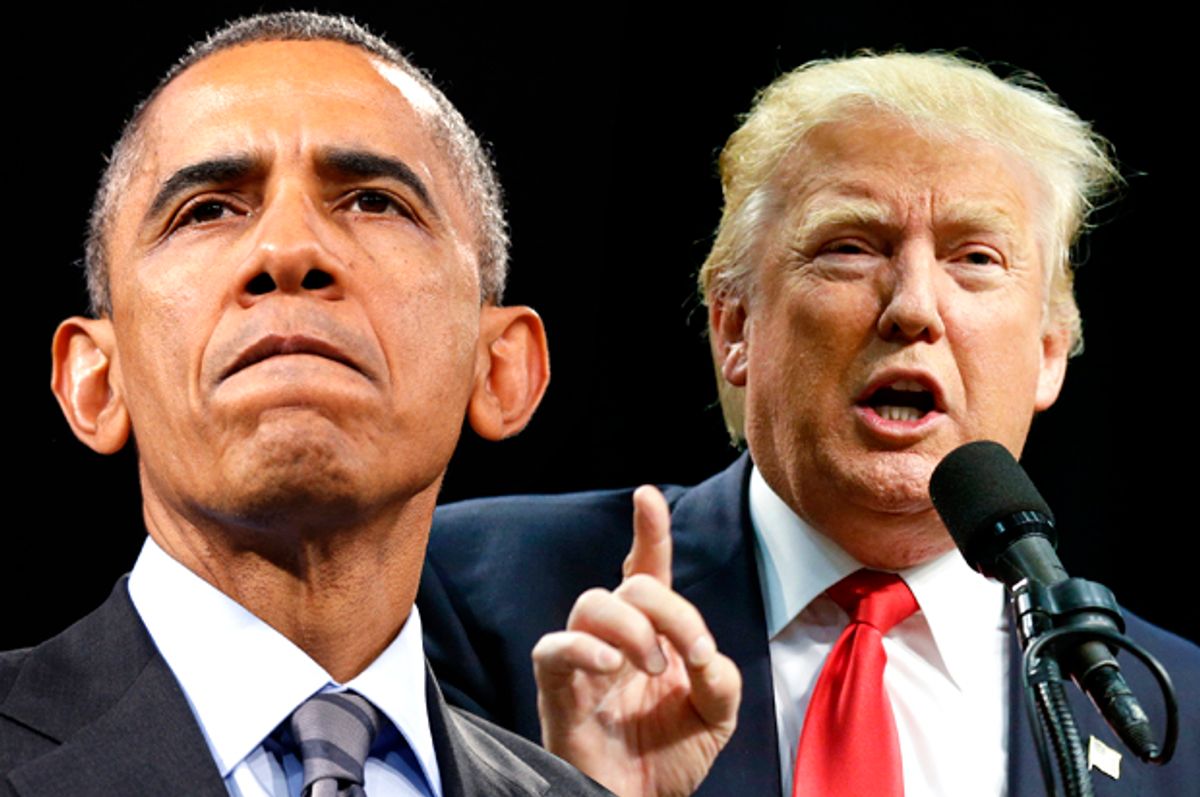President-elect Donald “Divisive” Trump took hit podium last night after his win, saying that it’s time for us to come together and unite as one. He sounded just as ridiculous as Secretary of State John Kerry did last week when he told a group of people, likely Hillary Clinton supporters, that our nation needs to heal after this election.
The sentiments were similar to Kerry's own concession speech back in 2004, when he stated, "I spoke to President Bush, and I offered him and Laura our congratulations on their victory. We had a good conversation, and we talked about the danger of division in our country and the need, the desperate need for unity, for finding the common ground, coming together. Today, I hope that we can begin the healing."
Kerry's intentions seem good — any language on unity does — but they ignore the problem that cuffs us to stagnation. The idea that this country was ever unified is a joke and a bad one at that. America’s record is like this: owners against the slaves, North against South, liberals against the conservatives, the cops against the African-Americans, Bloods vs. Crips, the city as opposed to the suburbs, the divide between white collar and blue collar, the intellectual and the factory worker, and on and on.
How can you heal something that came broken? Unless by "healing" we mean take the country back to a place of racism, classism and sexism . . . but we are already here.
In 1992, hip-hop artist 2Pac recorded a track called "Changes," in which he stated, “Cops give a damn about a Negro/ Pull a trigga, kill a nigga, he’s a hero!” The song wasn’t released until 1998. In 2016, NYPD Officer Daniel Pantaleo of New York's Staten Island, the coward who squeezed the life out of Eric Garner with an illegal chokehold on video, earned an extra $23,000 in pay. How do things like this even happen? The bigger question is why aren’t more people upset when they do? And do these scenarios continue in Kerry’s healed world?
I had the pain of sitting through President Obama’s ABC News town hall on race back in July. I was honored to be within an arm’s length of our nation’s first black president but hurt by the look on Garner’s daughter Erica’s face. The room was full of the victim’s family members, activists, students, YouTube sensations and journalists, and Erica Garner, like most of us vocal types, didn’t get to say a word to the president about her father and the investigation into his murder.
For more than an hour, we sat and listened to a clueless lieutenant governor from Texas; whiny police apologetics; the mother of Michael Slager, who is the lying killer of Walter Scott; and sweet children who deserved to speak but weren’t capable of asking the tough questions — questions that our nation needs to hear, questions I know Erica Garner would’ve challenged everyone with. Instead, she was ignored and then stormed out of the room in an angry rant about how phony the entire event was. A white woman looked at me and said, “Wow, she’s a looney one.”
I shook my head no and replied, “You know her father was murdered on camera, right?” and walked away, as she picked up her face and tried to respond.
Angry, crazy, looney — whatever other insensitive judgment that gets irresponsibly tossed around is how all black people in this country deserves to feel, whether they acknowledge these issues or not. Any conversation on healing, bringing unity or regressing in any way is a slap in our face. We watch people like Pantaleo walk away all the time, while our legal system rushes to fill every empty cell with black and brown bodies.
And then we get to cases like the people involved in the Oregon standoff. Can you imagine one black person — not even seven like in Oregon, but one — trying to stage an armed standoff with a police department. That black person would be full of bullets. And if he were lucky enough to survive, he would wake up facing a thousand years in jail.
And that’s not hyperbole — it’s a statement from a man who came of age in Baltimore in the era of Martin O’Malley, whose racist policies ruined the lives of thousands of African-Americans. O'Malley had so many blacks locked up that the NAACP and the American Civil Liberties Union had to double team him in a lawsuit that he lost. And still, he got to run for president, while most of the people who suffered under his reign still can't get jobs because of his racist policies. Healing? More like business as usual.
Everyone should be looking at the history of this country and recognizing the patterns that exist within the African-American experience. America promised opportunity in a new land, and we got slavery. The 13th, 14th and 15th Amendments to the constitution were passed, we entered Reconstruction and experienced some progression, and then were slapped with Jim Crow. After Jim Crow, we got the Civil Rights Act, which only set us up for more segregation and more poor schools leading toward mass incarnation under lopsided drug policies.
It’s always give and take: Give us a first family as classy and intelligent as the Obamas, and then take them away and replace them with a group as trashy as the Trumps.
So let’s relax on the healing language as we collect our armor for the next four years. The same issues will continue to exist, and we need to do better at acknowledging what’s broken before we aimlessly talk about bringing back together a county that has yet to have been united.



Shares